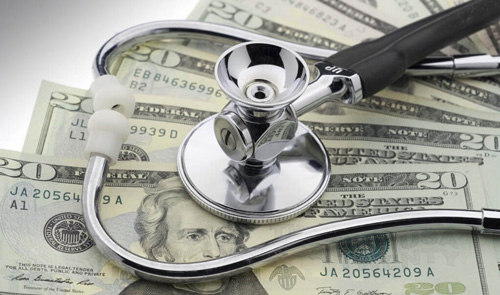The holidays: A season of gaining weight
 Americans gain about one to two pounds during the holidays. While this doesn’t sound so dramatic, research shows it adds up over the years.
Americans gain about one to two pounds during the holidays. While this doesn’t sound so dramatic, research shows it adds up over the years.
Here’s some information from the national Academy of Nutrition and Dietetics that you can share with your employees. There are ways to avoid holiday weight gain.
Don’t Skip Meals
Saving your appetite for a big holiday party or feast? Don’t. Skipping meals during the day may result in overeating. It is especially important to have breakfast, as research shows that those who eat this important morning meal tend to consume fewer calories throughout the day. Include lots of fiber by eating fruits, vegetables and whole grains. Fiber-rich foods are high in volume and will satisfy hunger, but are lower in calories.
Eat Small Portions
Holiday meals tend to be large, buffet-style and include second and third helpings. While one might not eat an entire cake, a common mistake is eating large portions of foods that are perceived as healthy. It's important to include nutrient-rich foods in your diet, but also remember that these foods have calories as well and should be eaten in moderation. Using this approach at the holiday dinner table will allow you to maintain a healthful eating plan — one that can also include dessert.
Pick a Strategy to Avoid Overeating
There are many strategies to help you avoid overeating. Using a smaller plate, for instance, allows you to put less food on your plate and encourages proper portion sizes. Also, start by filling your plate with vegetables and salad before going to the entrees and desserts. Eating a salad before your meal can help you eat fewer calories overall. Eat slowly and savor every bite, and before you go back for seconds, wait 10 minutes to see if you really still are hungry.
Keep Moving
Finally, after dinner or when the party is over, plan some physical exercise. Even if it is the next day, go for a walk, visit the gym, or play catch or a game of basketball with the kids.

